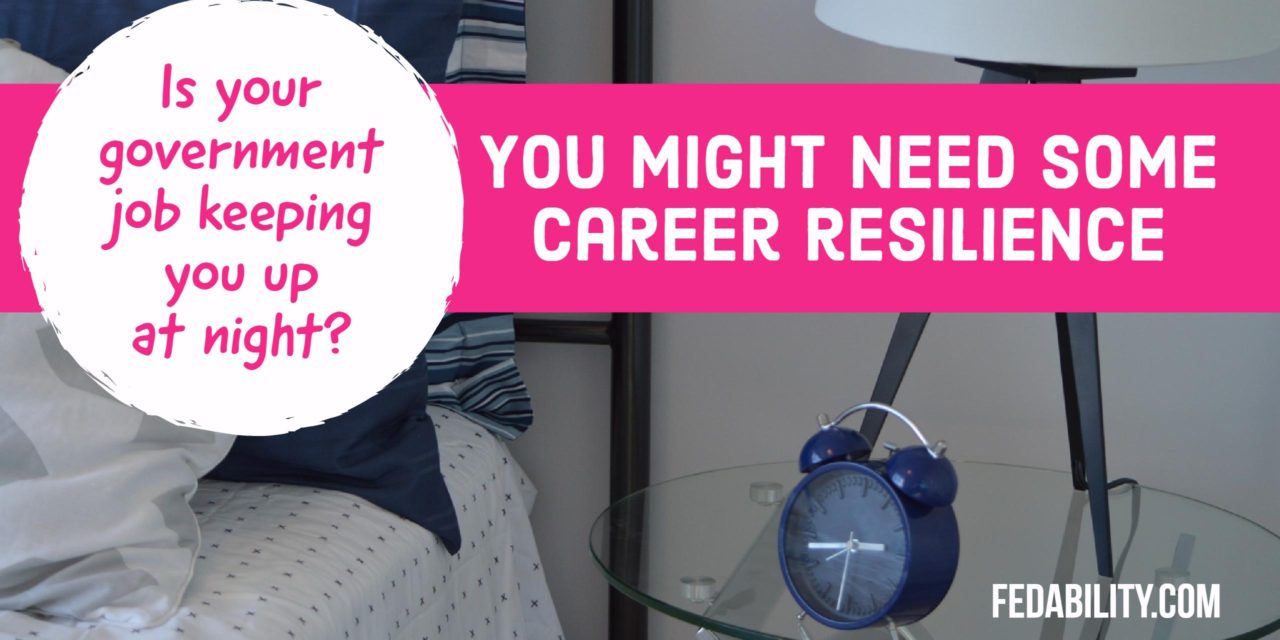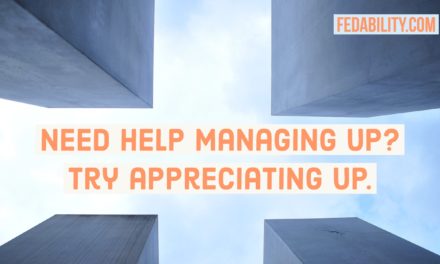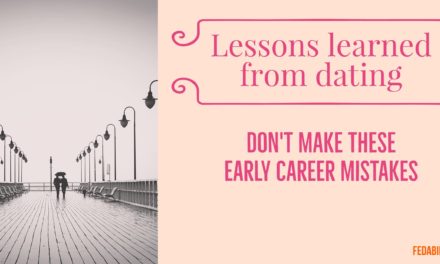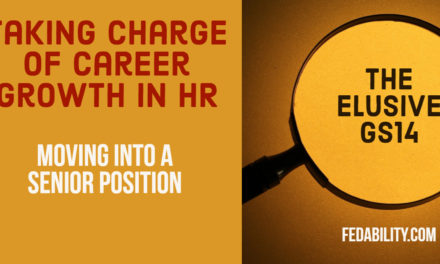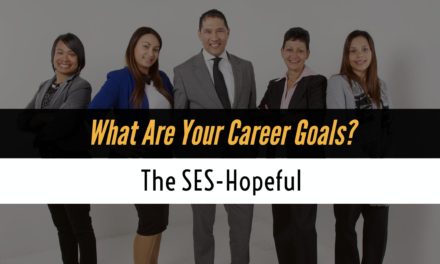There’s been a lot of shake-ups in government lately. And, as a result I’ve also seen a surge in writing about resilience. Specifically, personal resilience or self resilience. But, when I think of the challenges of working in government, I think of how it’s never really easy to be a high-performer. And so, I want to dedicate this post to career resilience and career self reliance.
First, I should mention this is the 100th post on Fedability.com. When I look back on why we started this blog and where we are today, I see how we’ve adapted as well as how our mission has been consistent throughout. Our mission is to help empower government employees to shape their career journey. As such, I’ve written about interviewing, developing oneself, leading others, teamwork, bitterness and happiness, and general career advice. I’ve also got some segments on TEDTalks Tuesdays and What I’ve Been Reading. But, when it comes right down to it, our mission is to help you – a dedicated, high-performing, government employee to build and maintain your career resilience and career self reliance. To empower you on your career journey that you find fulfilling.
What is career resilience?
The best definition I could find on career resilience that best describes the government worker is this: The ability to adapt to changing circumstances even when the circumstances are discouraging or disruptive (Collard et. al., 1996, p. 33).
Oftentimes, I think of the government as a huge aircraft carrier. Once it gets moving in a certain direction, it takes some time to make a significant turn in another direction. In some ways, this isn’t so bad. It means that our government weighs the pros and cons of a change – there’s checks and balances.
But sometimes, our government is frustratingly slow to adopt new practices. And, even ‘fast’ changes in the government are painfully long in the minds of business people and the American public. It’s just not designed to make fast changes.
What we are experiencing today in government, is probably the largest disruption of our lifetimes. And, because we aren’t used to these significant disruptions we are having a harder time navigating a path in our careers.
Some of us worry about reductions in force (RIFs), while others of us wonder if now is the time to leave government. Still others of us know that there’s a plan to restructure the workforce – and that in part means finding ways to attract Millennials.
And maybe you (like me) aren’t a Millennial and wonder, “What about me and the skills I bring to the table?”
Which brings me to the concept of career self reliance.
What is career self reliance?
Career self reliance has been defined as taking responsibility for ones own career and growth. Enhancing one’s own performance and long term employability. All while maintaining a commitment to the success of the agency and/or government as a whole. (Waterman, Waterman, & Collard, 1994).
There are some I’ve met along my government career that expect to be told what they need to do to be successful. Some think that if they put in their time, they will be promoted. Still others, believe that the government is responsible for developing the skills needed to perform.
I’ll share a secret with you.
These beliefs are not unique to government employees. In fact, there’s a ton written about organizations place an emphasis on their own success and survival over the success of its employees. And, likewise, that employees no longer plan to stay with an organization for their lifetime because they’re concerned about their own success more than they’re concerned about the organization. In short, the need for career self reliance and resilience.
How do you become more career resilient?
First, you must be dedicated to personal excellence and continuous learning.
You’ve probably already got that covered given that you’re here reading this post and likely a member of the Fedability community (if not, you should sign up by requesting one of our free gifts).
The tougher component of being career resilient is developing your skills to align to the business needs of the agency you currently work in.
Now you might be saying, “Dr. Dana, we aren’t a business. What kinds of business needs could my agency possibly have?”
The answer is that it depends on your agency and your career field.
But, here’s some things to start with:
- Find and read your agency’s strategic plan. Look for where your work fits into that plan.
- Define what success means for your agency. And, your department or team. And, for your current position.
- Determine how you would measure that success.
- Figure out how to show a return on investment for what you (and your team) do.
How do you become more career self reliant?
My question to you is this: Are you ready to reinvent yourself to keep pace with the changes in our government and your industry?
You must be willing to change agencies. To cross functional areas. You must be willing to adapt – sometimes working on special projects and other times completing your regular duties.
Now, this doesn’t mean that the sky is the limit or that everything is on the table. You must find the crossroads of your career. And this quote from Fox (1995) says this well:
A chaotic organization is a great place to learn. I must be selective in what I learn. It is possible to align what I want, what the organization wants, and what the market wants.
With that, I ask you to reflect on these questions.
- What do you want out of your career? What are you doing to move yourself in that direction today, this week, this month, this quarter?
- How does what you do support the success of your agency?
- What changes are coming in your industry? How will that change your role in the government?
- What are you doing to develop skills that are outside of your current position or duties to make you more career resilient?

